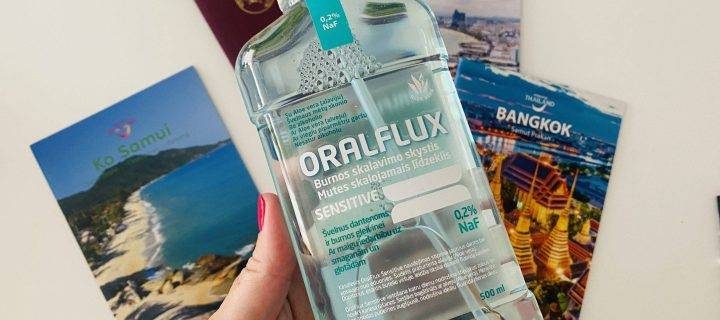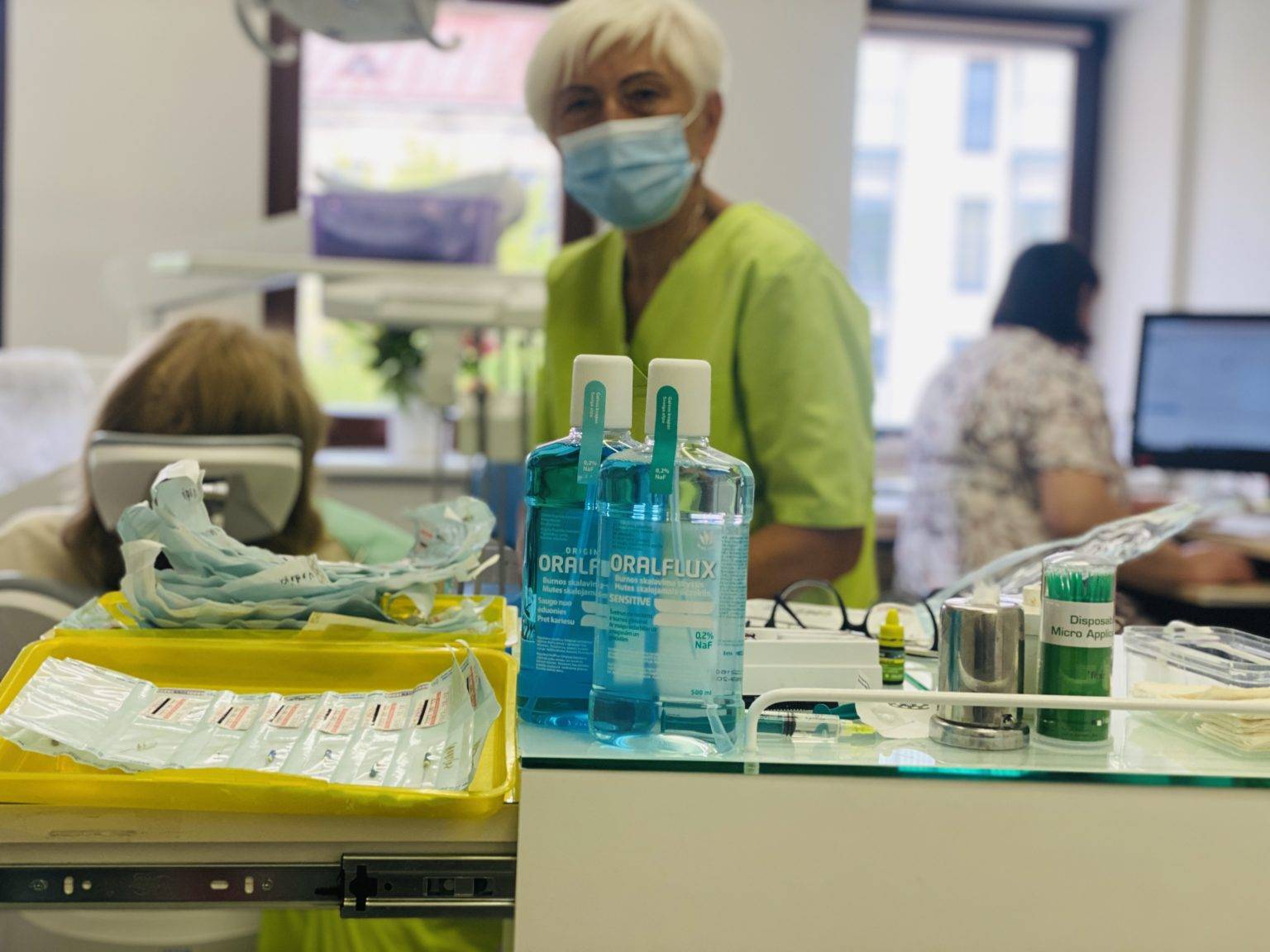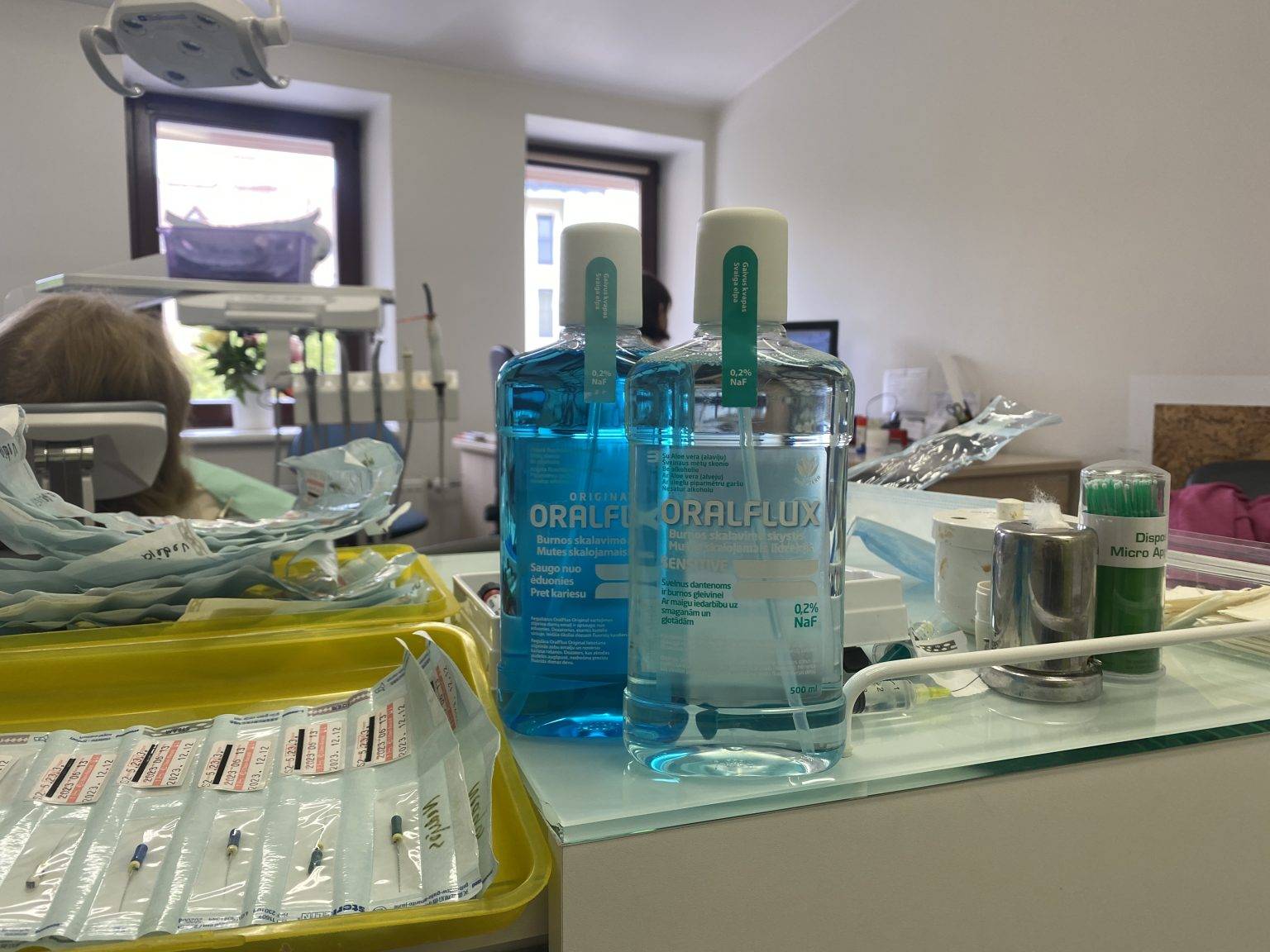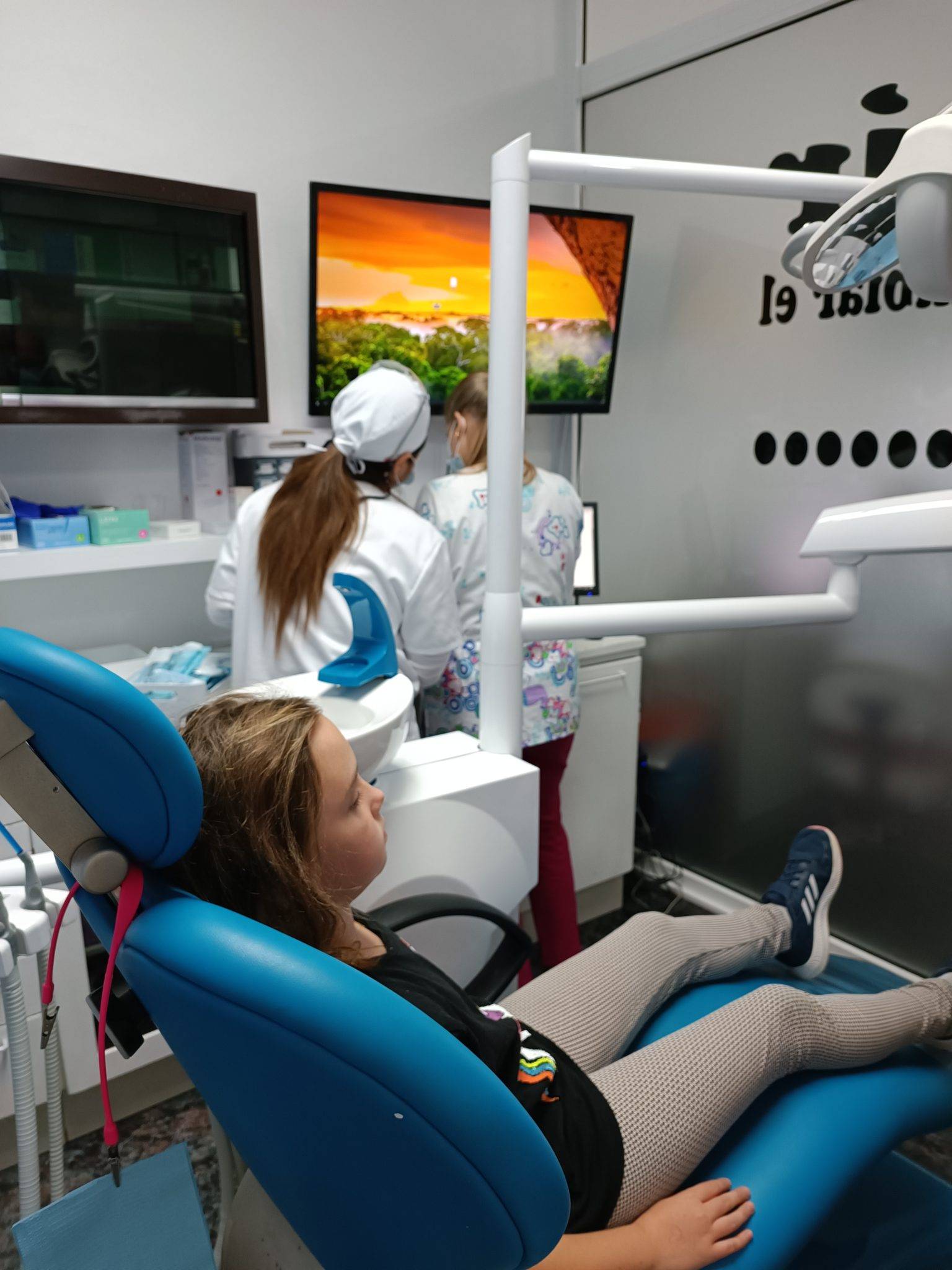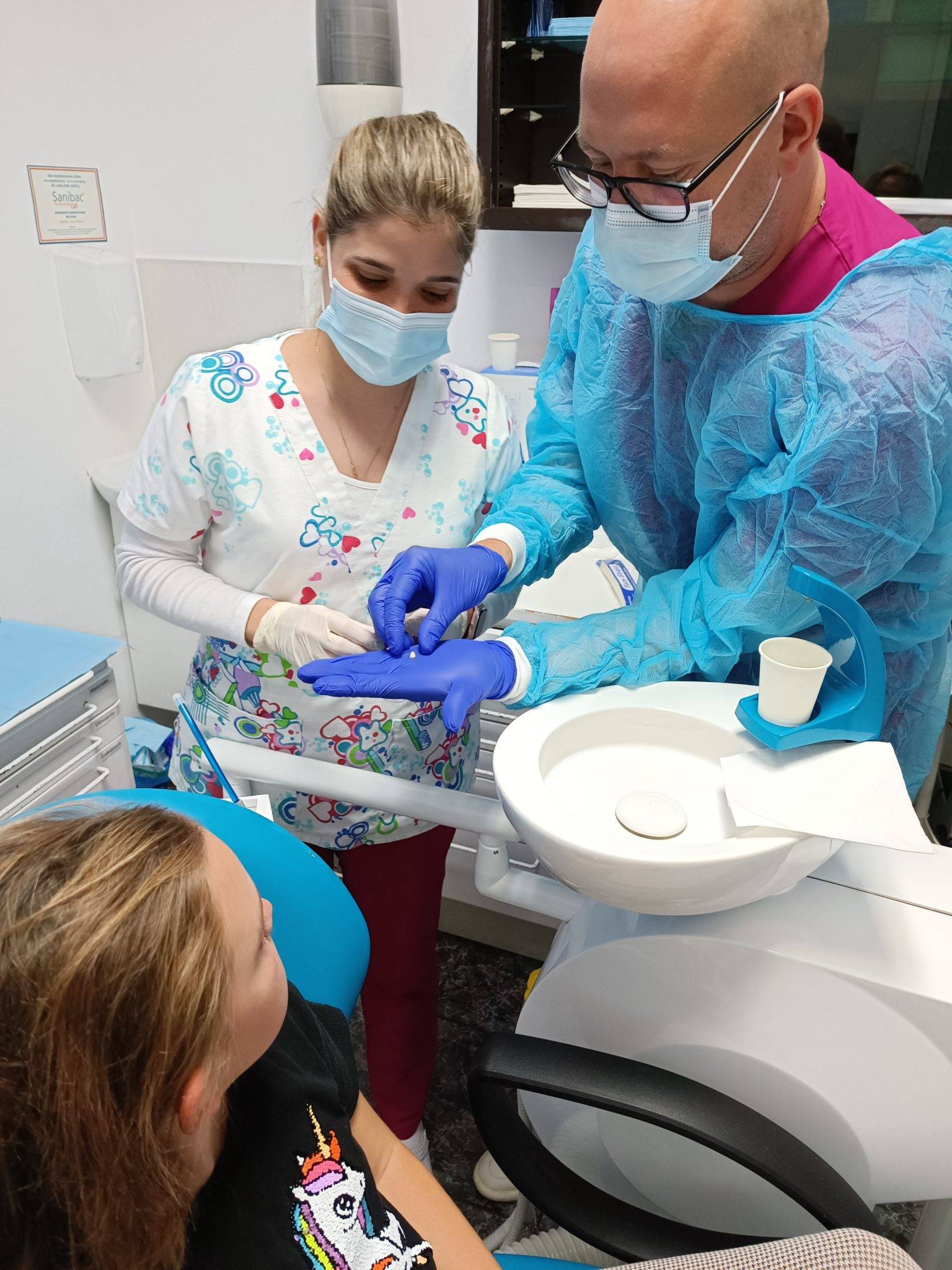In summer, we tend to feel stronger, more energetic and revitalised when the sun shines. However, one thing is missing – it is in summer that dentists receive the highest number of clients, big and small, complaining of toothaches. Why summer? Audrone Chsanauskiene, Head of the Dentistry Department of the Medical Centre of the VRM, answers this question. She advises on children and adult dental care when travelling.
Why dental care when travelling in summer is especially important.
It is not a myth that it is in the summer that dentists receive the highest number of complaints about toothache from patients. Dentist Audrone tells us that the most common reasons for this are a change in the daily routine, a different diet and often just a “holiday regime”. In other words, holiday laziness, when after a day full of excitement, activities and sunshine, we fall asleep without brushing our teeth. In addition, dental care when travelling in summer is often not as good and tidy as usual.
The dentist points out that treating children’s teeth after the appearance of pain is often very difficult. The child may refuse to even laugh, which makes it difficult to reach an agreement, and all the forced measures can leave the child traumatised, making future visits to the dentist a nightmare. To avoid this, parents are advised to have their children’s teeth checked before the summer holidays start. They should also remind their children of the importance of dental hygiene. And the importance of dental care when travelling. In addition, the earlier you start regular check-ups with the dentist, the more routine it will become and the easier it will be for your child to accept treatment in the future. And dental care when travelling and holidays will be no different.
Before planning a holiday, make an appointment for the whole family to see the dentist first, because sometimes it happens that a tooth gets chipped on holiday.
Dental care when travelling – why do you get a toothache
Dental care when travelling is particularly important, for many reasons:
- Fruits – in summer, we consume more fruits, berries and juices containing a lot of acids. These acids are active in the teeth and erode tooth enamel;
- Sweets – ice cream, milkshakes, strawberry tarts and many other sweet sins are common on holiday, and if we are travelling we want to try lots of local sweets. At the same time, children are often allowed to indulge in sweets more often;
- Temperature differences – when it’s hot, we rush to refresh ourselves with cold drinks and ice cream. And while a cool palate is a blessing, it is a cold shock to the teeth and can cause the enamel to crack;
- Soft drinks – usually containing a lot of sugar or sweeteners, which combined with the bubbles and ice cream so popular in the summer are a real axe to tooth enamel and contribute to tooth decay. Alcoholic beverages have the same effect.
- Not following a dental hygiene routine is the cardinal summer sin, and the one that affects the teeth the most. Without brushing your teeth at least 2 times a day, tooth decay can reach your teeth within 3 weeks! And if your teeth were not already in perfect condition before the holidays, the problem grows worse and worse and starts to hurt.
How to avoid toothache on holiday.
- Avoid temperature differences in food and drinks;
- Limit sweets and soft drinks, alcohol and rinse your mouth with water every time after consuming them. It helps reducing the acidity in your mouth. And rinse your mouth with mouthwash after every meal. We prefer ORALFLUX products. Keep a small bottle (50 ml. or 100 ml.) in your handbag and simply rinse your mouth with it after meals. Also drink soft drinks, juices, cocktails through a straw.
- Brush your teeth regularly. Not only in the morning and evening, but also in the afternoon. If you can’t, at least chew gum;
- Have your teeth checked by a dentist at least 2 weeks before you go on holiday. Especially in a foreign country, so that the dentist can treat critical problems if necessary. If you are suddenly struck by dental problems abroad, you may have to pay a significant amount for treatment. Because insurance is usually only available for emergencies;
- Get regular dental check-ups and oral hygiene treatment at least once a year (for adults).
How to prevent tooth decay in children during the holidays.
Rinsing
Be sure to give your child water after sweets and fruit and teach them to rinse their mouth.
Eating harder vegetable and fruit
Chewing an apple or eating harder vegetables during the day will help the food residue to clear up a little on its own, but of course this is no substitute for brushing.
Routine
The most important thing is to be sure to stick to the brushing regime, so that all teeth are thoroughly cleaned in the morning and even more so in the evening, and in the case of a younger child (up to the age of 6 years) be sure to brush with the help of an adult to reach every tooth.
If children often spend time with their grandparents, stay overnight or go on holiday, we recommend that grandparents also prepare their homes with children’s oral hygiene products when their children and grandchildren come to visit. This could be either children’s toothbrushes or at least some disposable guest toothbrushes with children’s toothpaste.
Help from parents
Cleaning correctly is also important. Sometimes children purse their lips, tighten their cheeks, don’t relax and move their head a lot, which makes it really difficult for them to clean their teeth thoroughly. Therefore, dentists recommend brushing even up to the age of 12, with parental support. It helps children develop an easy-to-remember routine of brushing in sequence, rather than skipping over a few surfaces in a short time. It is recommended to take your time and spend at least 5 minutes brushing children’s teeth.
Setting an example
Children always follow the example of their parents and older brothers/sisters. So how you look after your own teeth is what your children will try to do too. The most successful result is when the whole family brushes their teeth at the same time! You can even make it a playful activity and compete to see who can brush the longest and most thoroughly.
Natural remedies
If your child has a chipped tooth and you are abroad or there is no dentist nearby, dentist Audrone advises you to try natural remedies. Have some clove oil in your medicine cabinet, which you can use to moisten a cotton swab and apply to the sore tooth. A slice of onion or a clove of garlic can also be a great solution: place these herbs on the sore area. This will help to relieve the unpleasant sensations. And when you get home, take your child to the children’s dentist quickly.
Tested dental products that are mom-friendly
After trying many popular and unpopular liquids, the ORALFLUX product line was the one that our dentist recommended to us. We usualy use ORAFLUX ORIGINAL. However, after more serious dental procedures, we also used the specialised ORALFLUX CHLORHEXIDINE for a while.
I liked the fact that the composition is highly enriched with fluoride 0.2% NaF (equivalent to 910 ppm F). This liquid also provides a very strong tooth strength after cleaning. When you use it, you don’t just get fluoride from the toothpaste, but also from the liquid. The effectiveness of this rinse in strengthening tooth enamel is clinically proven!
What’s also important for us as moms is that it contains no alcohol, so it’s perfectly safe to use every day, even during pregnancy or breastfeeding. It also has a fresh smell, a mild minty taste and does not burn the mouth like some popular liquids. During pregnancy, if you are particularly sensitive to odours and feel that your teeth have become much more sensitive, try the milder version ORALFLUX SENSITIVE. It is also alcohol- and paraben-free, and additionally contains Aloe Vera, known for its desensitising properties.
And last but not least, ORALFLUX has a very handy dispenser at the top of the bottle. It allows for precise daily dosing of fluoride, and is easy to use.
The price is also very friendly, so it just goes to show that you can find a really good product for a reasonable price.
5 tips for brushing your teeth the right way
- Brush your teeth thoroughly at least 2 times a day, including after lunch if you can. You can also shake your gum for a few minutes during the day.
- When brushing, use warm water at room temperature.
- Floss every day (especially at bedtime), as food stuck between the teeth can cause cavities over time.
- Rinse your mouth with water after meals and after sugary, acidic drinks or fruit or sweets. It helps to reduce acidity and the risk of tooth damage.
- Mouthwashes are a great way to fight acidity and cavities and are best used morning and night.
After trying many popular and unpopular liquids, the ORALFLUX range has been the most successful for us (we mostly use the plain ORALFLUX ORIGINAL).
When to seek emergency dental care?
Toothache is, of course, something that happens to everyone. Especially when you’re sipping hot coffee and an ice-cream shake (don’t do that!). However, such sensitivity pains are short-lived, usually only lasting a few minutes. Sometimes there is also an existing cavity affected area, which you will have to make sure to treat after the restoration.
However, there are times when the pain persists and becomes not only bothersome but also intense, throbbing, pulsating, forcing you to resort to painkillers.
- If the pain is quite severe, throbbing, and intensifies in the evening, it may indicate inflammation.
- If there is swelling, it may indicate an infection that can spread further, so do not delay.
In such cases, it is simply necessary to go to the nearest dentist as soon as possible. Because the situation can escalate quickly and the infection can spread throughout the body.
- Children often need dental care after accidents (e.g. falling off a bicycle, skating rink) to repair chipped or knocked-out teeth. In such situations, children’s dental treatment should be started as soon as possible. Because delays can lead to the need for dentures. If you save the chipped tooth after the injury and get to the clinic as soon as possible, you may be able to get it fixed, which will avoid more complicated procedures and high costs. The sooner the damaged tooth is restored, the better the chances of it healing.
Be sure to check your travel insurance or ask about the conditions for ESDK (in EU countries) if you are travelling abroad.
Be aware that with an EHIC in many countries, emergency dental care is ONLY available for acute toothache.

